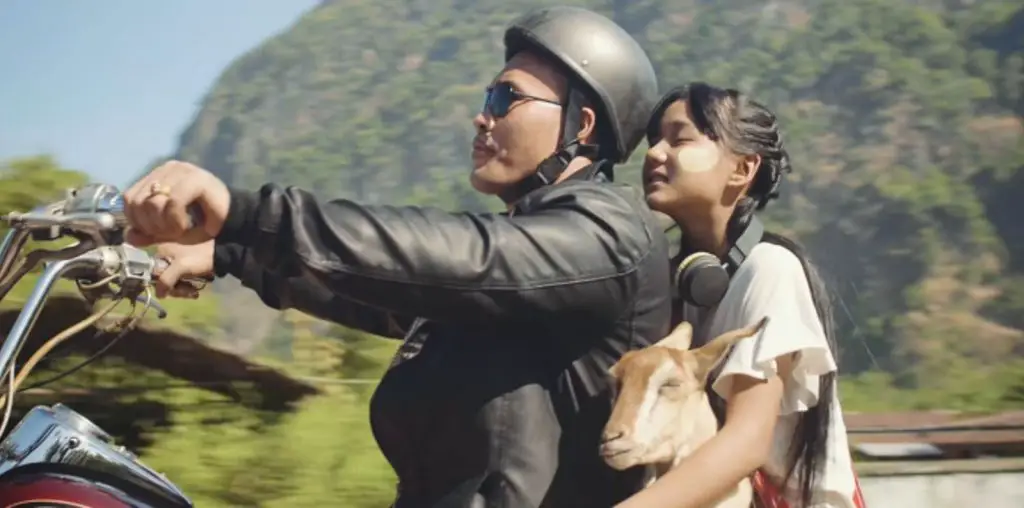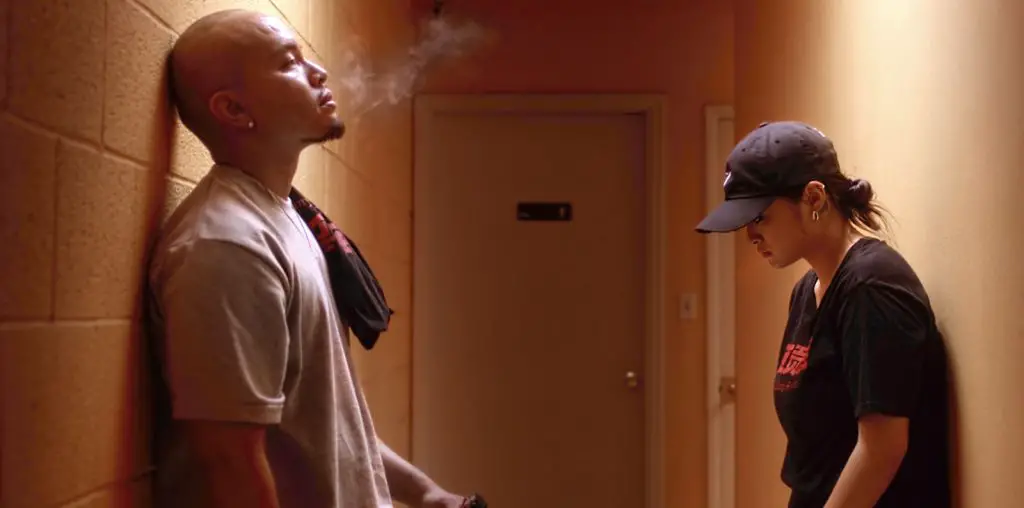
To give her family a chance at a better life and save her family’s failing restaurant, Tera Wong, a desperate 20-year-old Asian girl, parlays her Chinese food delivery expertise into a profitable drug hustle.
Making a low-budget indie crime thriller isn’t easy. The key is resourcefulness and passion. I spoke with filmmaker Hisonni Johnson and writer/star Hedy Wong about Take Out Girl — the winner of the Award This! Indie Action/Thriller. We talked about the advantages of filming in Las Vegas over the cost-prohibitive Los Angeles and how passion gets your film made.
Congratulations on your Award This award. How’s your whirlwind award win going for you?
Hedy Wong: It’s been surreal. I am so relieved. I never thought I would be at this point. I’m just thrilled, Alan. I feel blessed and thankful.
Hisonni Johnson: It’s been such a long time, using Film Threat as a benchmark to know if my work was moving in the right direction or not. My formula is always to make the film, and before I submit it to anything else, I submit it to Film Threat for review.
We got a chance to watch it. This was like Sundance from last year when it was pre-COVID. What has been the COVID adventure been like for you and the film?
Johnson: It’s been interesting. I’ll be honest when it first happened, I felt a little, “Woe is me.” Because it didn’t look good, it looked like my luck would be that I spend years making a feature film and then not showing it to anyone because COVID would kill any chances of being able to screen it at film festivals. Film festivals were only part of how we were hoping the film was discovered and then distributed. But that turned out to be not the case.

“If it weren’t for film lovers going the extra mile, yeah, this wouldn’t be happening.”
Film festivals, and film outlets, like Film Threat, soldiered on. If it weren’t for film lovers going the extra mile, yeah, this wouldn’t be happening. None of this would happen for us, mainly because so many film festivals chose to cancel. That was always an option. Everybody could have just stopped for the year. But the people who didn’t, those are the people that are really for you, those are the relationships that will last the rest of my life, those are the loyalties I’ll have for the rest of my life.
Hedy, let me ask you where did the idea of your story come from? I’m Chinese as well, and they’re very familiar beats that I’ve felt in the film. So, where did it come from?
Wong: It came from my life. My family ran Chinese restaurants for pretty much all my life in the Bay area. I’ve been living in LA for a decade, so I kind of just combined the two realities. And when I moved to LA, I knew nobody. I didn’t know anybody. I moved into the Pico-Union area, which is a predominantly Salvadorian area.
It just kind of stems from unhappy times, and just kind of a reflection of like, “How did I even get to this point?” And at that time, my family was also going through some things in the Bay area. My mom’s stressed out, and I’m stressed out, but I didn’t talk to her that much because I couldn’t, because I couldn’t hide my pain anymore. I knew she could tell. So if I didn’t have good news, I didn’t talk to her that much.


